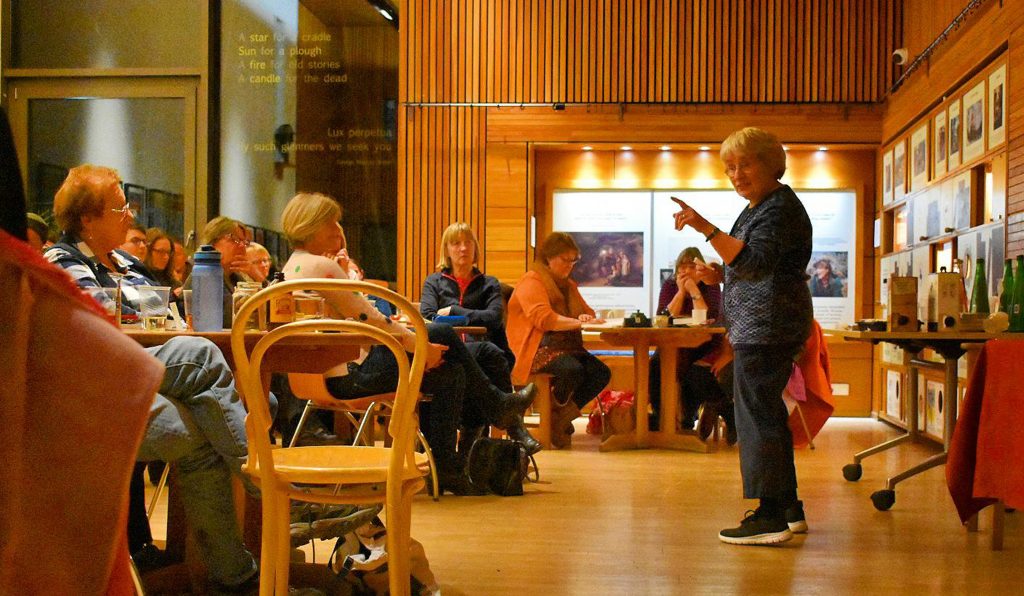How do I join the Directory?
Criteria for Submission to the Directory of Professional Storytellers in Scotland
Experience
You will have been developing as a storyteller for around three years (less/more depending on experience already brought): taking part in workshops, learning the craft, participating in apprentice events/mentoring schemes (where possible) and engaging with the rich culture of storytelling, taking opportunities to listen to other storytellers and to tell stories.
The Storytelling Apprenticeship peer support programme welcomes people wishing to develop themselves as storytellers. It invites storytellers to regular gatherings, to meet with others and share skills. In this sense, the word apprentice is used to describe anyone working towards gaining professional recognition as a storyteller.
You will be gathering a repertoire of stories and gaining experience in telling stories in a variety of settings to a variety of audiences. (Although a storyteller may go on to specialise with an age group or storytelling tradition, it’s important at this stage to demonstrate flexibility).
Providing References; two emails or letters of recommendation from people in professional settings who have witnessed the storyteller tell stories in front of an audience. These references may be from librarians, school teachers, festival organisers etc.
Understanding
You will have an understanding of the art and craft of oral traditional storytelling and an ability to represent storytelling’s Vision and Values.
Development & Process
Providing Feedback; two feedback forms from Directory storytellers with at least three years’ experience should be sought. Ideally, the apprentice will have told stories in many settings, and the directory storytellers giving the references will have had experience of the apprentice over time, having heard them tell several stories. At least one of the referees should have heard the applicant in an extended session of at least 30 minutes solo, demonstrating an ability to shape a programme and hold an audience.
We recommend that, ahead of asking the directory storyteller to fill in the feedback form, the applicant engages with the storyteller, telling them they hope to go onto the Directory, and asking what feedback they might give. The emergent storyteller should engage with this feedback and use it as a pathway of development. A directory storyteller will only agree to complete a form when they are sure of the progress being made.
The feedback forms are robust and cover areas such as:
- How does the storyteller engage with the audience?
- Is the storyteller well prepared?
- Does their voice carry the story?
- Do their gestures and general sense of movement also serve the story?
- Does the storyteller understand oral traditional storytelling?
The apprentice should acquaint themselves with these forms, to know what is asked and expected of them.
In the final six months before application, an opportunity should be found to demonstrate the delivery of an extended session of telling in a comfortable setting for the developing storyteller.
Once an apprentice decides to embark upon the process for Directory approval, their name will be brought to the attention of the Forum, with paperwork circulated in advance of the relevant Forum meeting.
For more information about applying to the Directory, get in touch with Janis Mackay.













